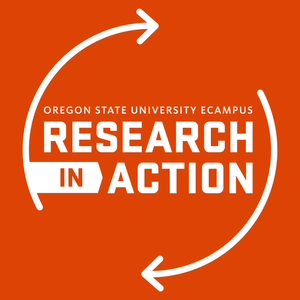
My Sediments Exactly - A brand new Springer podcast for all things geo- and earth sciences
05/13/24 • 2 min
Welcome to "My Sediments Exactly," Springer’s latest geo and earth science podcast where we take nothing for Granite. We’ll be digging and diving, making sure to bring you the best science and scientists to keep you updated on everything geo and earth sciences. ! You'll crack up at the joints and marvel at the faults because, in this show, it's all about the STRATA!
If you have something to say, we'd like to hear it. Contact us on [email protected] with your feedback and ideas and if you'd like to be featured with us. Follow and subscribe wherever you get your podcasts, one episode every two weeks and some special episodes periodically.
My Sediments Exactly. Follow us at @SpringerGeo and Springer Environmental Sciences at @SpringerEnviro on X , formerly known as Twitter. We would love to hear from you. If you have questions, comments or would like to be featured on this podcast, please send your feedback to [email protected]
Welcome to "My Sediments Exactly," Springer’s latest geo and earth science podcast where we take nothing for Granite. We’ll be digging and diving, making sure to bring you the best science and scientists to keep you updated on everything geo and earth sciences. ! You'll crack up at the joints and marvel at the faults because, in this show, it's all about the STRATA!
If you have something to say, we'd like to hear it. Contact us on [email protected] with your feedback and ideas and if you'd like to be featured with us. Follow and subscribe wherever you get your podcasts, one episode every two weeks and some special episodes periodically.
My Sediments Exactly. Follow us at @SpringerGeo and Springer Environmental Sciences at @SpringerEnviro on X , formerly known as Twitter. We would love to hear from you. If you have questions, comments or would like to be featured on this podcast, please send your feedback to [email protected]
Next Episode

Tree Rings to Understand Climate Extremes and Ecosystem Changes: An Interview with Prof. Zhihong Xu, Griffith University Australia
Tree rings serve as a natural archive for studying past climate conditions. By analyzing the tree rings, researchers can date the year the tree was growing and reconstruct past droughts, floods, and wildfires. Nitrogen is a critical element for forest ecosystems and its availability affects forest health and productivity. Climate extremes like droughts, floods, and wildfires have a significant impact on forest ecosystems and the nitrogen cycle. The use of isotopic markers, such as N15, can help understand climate change impacts on extreme weather and future climate projections. The research aims to influence public awareness and policy regarding forest conservation and climate change mitigation. Challenges include verifying the technology globally and expanding the research to explore other isotopic markers. The goal is to develop climate mitigation strategies and achieve sustainable development goals related to climate action and life on land.
Keywords
tree rings, climate conditions, past droughts, floods, wildfires, nitrogen, forest ecosystems, climate extremes, isotopic markers, N15, climate change impacts, future climate projections, public awareness, policy, forest conservation, climate change mitigation, sustainable development goals
Takeaways
Tree rings provide a historical record of past climate conditions, including droughts, floods, and wildfires.
- Nitrogen is a critical element for forest ecosystems and its availability affects forest health and productivity.
- Climate extremes disrupt the nitrogen cycle and have a significant impact on forest ecosystems.
- Isotopic markers, such as N15, can help understand climate change impacts on extreme weather and future climate projections.
- The research aims to influence public awareness and policy regarding forest conservation and climate change mitigation.
- Challenges include verifying the technology globally and exploring other isotopic markers.
- The goal is to develop climate mitigation strategies and achieve sustainable development goals related to climate action and life on land.
If you have feedback about this episode or would like to be featured on this podcast, we'd like to hear from you. Contact us on [email protected] with your ideas. Follow and subscribe wherever you get your podcasts, one episode every two weeks and some special episodes periodically.
Check out the Journal of Soils and Sediments here for more insights.
My Sediments Exactly. Follow us at @SpringerGeo and Springer Environmental Sciences at @SpringerEnviro on X , formerly known as Twitter. We would love to hear from you. If you have questions, comments or would like to be featured on this podcast, please send your feedback to [email protected]
If you like this episode you’ll love
Episode Comments
Generate a badge
Get a badge for your website that links back to this episode
<a href="https://goodpods.com/podcasts/my-sediments-exactly-412930/my-sediments-exactly-a-brand-new-springer-podcast-for-all-things-geo-a-57505395"> <img src="https://storage.googleapis.com/goodpods-images-bucket/badges/generic-badge-1.svg" alt="listen to my sediments exactly - a brand new springer podcast for all things geo- and earth sciences on goodpods" style="width: 225px" /> </a>
Copy




